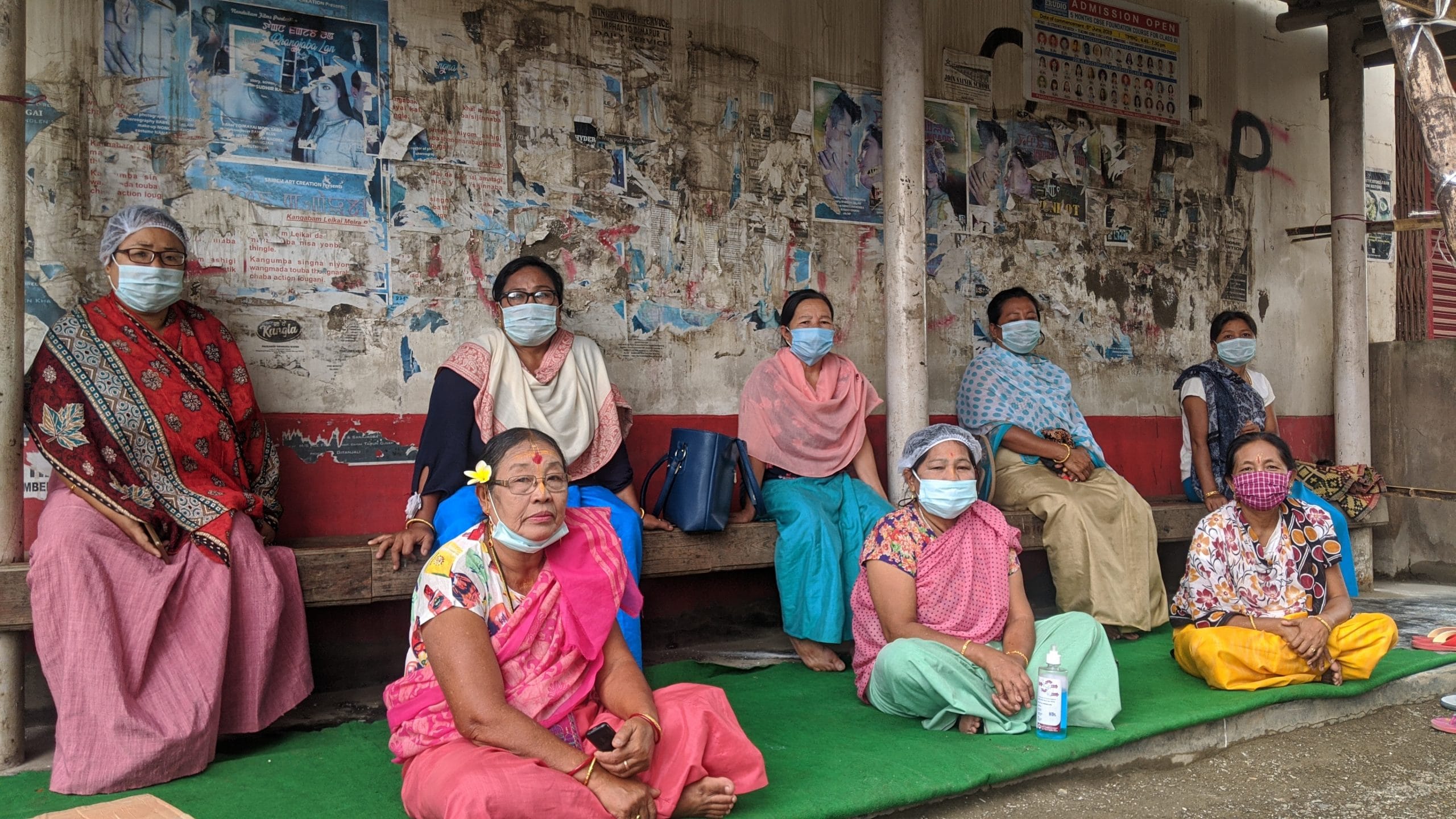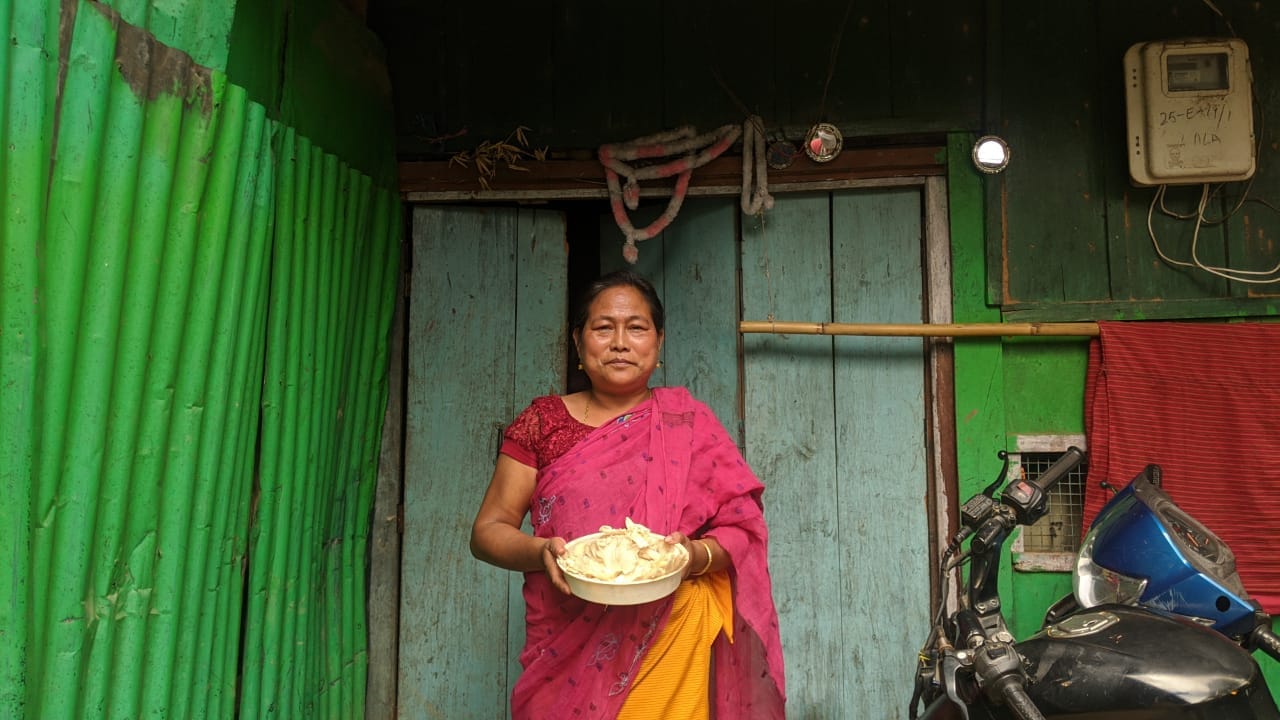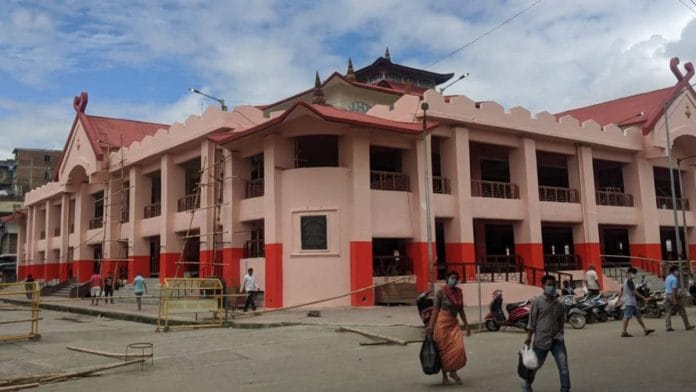Imphal: For 52-year-old Akoijam Pratima, the last five months have been akin to a nightmare. A mother of two, she had to close down her stall at the iconic mother’s market or ‘Ima Keithel’ in Manipur’s Imphal in the wake of the lockdown, where she had been selling clothes and vegetables.
Located at Khwairamband bazaar in the heart of Imphal, the market has been run solely by women for the past 500 years. The market currently comprises over 4,000 vendors. Touted as the largest ever women-run market in Asia, Ima Keithel came to a screeching halt ever since the Covid-19 lockdown came into place in March-end.
“It’s been about five months now, and it’s very difficult. I’m also on BP medication. I’ve had to ask my parents for money. We can’t work properly. Even if we want to work, we are afraid,” Pratima said when ThePrint visited her house.
The vendors of the market are now caught between their fight for hunger and fear of the virus.
“This fight for hunger is overriding our fear of the virus. If all the imas (mothers) are forced to come out and sell because of hunger, it will be dangerous. The government should come out with a system for the imas at the earliest,” said Laishram Ongbi Mema, a vendor and a member of one of the four women’s organisations at the market, the Manipur Nupi Marup Keithel Khwairamband Bazar.

ThePrint reached Imphal mayor Lokeshwar Singh for comments on the matter via phone calls, but there was no response until the publication of this report.
Also read: Covid an ‘eye-opener’, Manipur doctors say as pandemic exposes cracks in healthcare system
History of enterprising women
The vendors of the mother’s market belong to Manipur’s Meitei community, the predominant tribe in the state, where women have traditionally controlled the internal trade.
Research scholars G.K. Ghosh and Shukla Ghosh in their book Women of Manipur had written, “The habit of the country is to have bazaars at convenience spots by the roadside, where a handful of women congregate at an early hour.”
The largest of these bazaars is the Ima Keithel, which reportedly originated in the 16th century.
Women vendors in the market, who are known as ‘imas’ or mothers, are typically between the ages of 50 and 70 years.
Researcher Vijaylakshmi Brara in her article Culture and Indigeneity: Women in Northeast India, published in 2017, noted: “They (the imas) are generally the sole bread-earners for their children as their husbands have either died due to drugs and AIDS or due to the conflict between the state and the non-state actors.”
Pratima became a seller at the market after her husband died of a stroke seven years ago.
“I am a graduate myself, and worked as a counsellor for the HIV drug addict from 1992 to 2006. The money wasn’t enough and the project was coming to an end, so I went to Assam and started selling vegetables,” Pratima said.

She added, “But I didn’t want to leave my children alone so I came back and started selling clothes and vegetables in the [mother’s] market where my mother-in-law had earlier sold vegetables.”
Before the lockdown, Pratima and thousands of other women would wake up in the wee hours of the day, buy their goods from a wholesale market and set up shop at the Ima Keithel by 8 am. But ever since the Covid outbreak, women traders have been struggling to make ends meet.
Struggling in a pandemic
Laishram Mema, who has been a vendor at the Ima Keithel since the last 45 years, said: “The government announced the lockdown suddenly on 24 March. The daily wage earners were affected the most…
“The well-to-do traders and vendors are doing relatively well. But those who are managing on their own, without relying on their husbands and children, were hit hard,” said 70-year-old Mema.
Although the state government had promised to provide the vendors with loans, Mema said only 100 vendors of the market have received the loans so far.
“Initially we were promised help by the government and told that we will be provided Rs 10,000 each. We also submitted documents to the municipality. So far we haven’t received any such help from the government or the municipality. I’m so worried,” Pratima said.
To make ends meet, Pratima has now resorted to mushroom farming. She learnt the skill a few years ago at a workshop and decided to put it to productive use now in order to survive.
“I am able to harvest three packets of mushroom from one bundle of straw. After all my expenses, which include seeds, oil etc., I am able to make profit,” she added.
Like Pratima, 75-year-old Sangainganbi has found an alternative source of livelihood. She has set up a stall at Imphal’s New Checkon market.
“There was no source of income and it was getting hard. So I set up this store two months back… Although I can’t sell much, I do earn relatively more since it’s crowded here,” she said.

Also read: Mizoram, Manipur are using this traditional practice to keep coronavirus in check
Vendors expect govt help
On 25 August, Chief Minister Biren Singh tweeted about disbursing loans to street vendors.
“Working capital loan has been disbursed today to 368 number of street vendors and to 449 number of regular licensed vendors out of around 20 thousand projected beneficiaries including that of the hill districts under Pradhan Mantri Street Vendor’s Atma Nirbhar Nidhi,” he wrote.
Working capital loan has been disbursed today to 368 number of street vendors and to 449 number of regular licensed vendors out of around 20 thousand projected beneficiaries including that of the hill districts under Pradhan Mantri Street Vendor's Atma Nirbhar Nidhi, #pmsvanidhi. pic.twitter.com/uAMdPNIK5R
— N.Biren Singh (@NBirenSingh) August 25, 2020
However, many vendors like Pratima, Mema and Sangainganbi are yet to receive the loan.
“I would like the government to look at the people who are suffering and help them out as much as possible. We know that the government is not to be blamed for this virus. But just like parents take care of their children, I would like the government to ask the citizen if everything or everyone is doing okay,” Pratima said.
Also read: There’s a Covid surge in Northeast as infection & positivity rates shoot past India average






